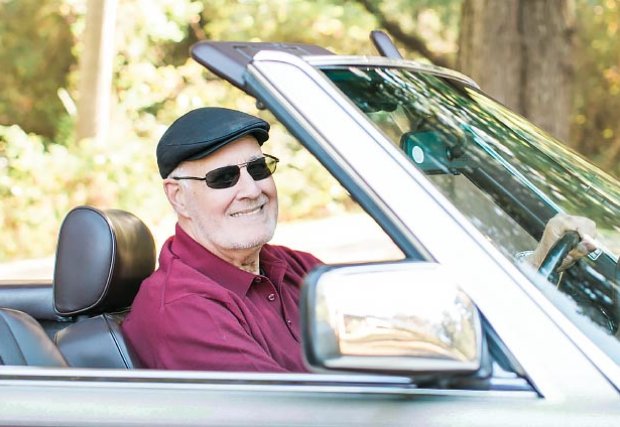James Bershon keeps busy with many hobbies, including his passion for cars.
“The problem is I was out of breath a lot,” he says, noting that he would often have to stop and take a break while working on his cars or walking the acreage surrounding his home in southern Maryland.
Aortic stenosis can be related to age and the buildup of calcium or scarring from a prior heart valve surgery. James’ prior open-heart procedure made him a high-risk candidate for redo open-heart surgery and a strong candidate for transcatheter aortic valve replacement (TAVR).
TAVR is a minimally invasive treatment option for select patients who are inoperable or deemed at intermediate to high risk for open surgery, says cardiologist Christian Nagy, MD, of GW Hospital. The procedure involves making a small incision in the groin or sometimes the chest, and threading a small collapsible valve through a blood vessel to the heart. The new valve is then expanded, pushing the old valve aside and taking over regulating blood flow.
James spent four nights in the hospital for the TAVR procedure and says he didn’t experience any pain, just some discomfort from being hooked up to medical equipment. “It really was a piece of cake, to be honest,” he says. “GW Hospital just has an excellent staff,” he says. “I’d highly recommend them to anybody.”
He no longer has to worry about stopping to catch his breath, and just weeks after his surgery he was at the Telluride Film Festival in Colorado, enjoying his renewed health at 9,000 feet. “I’m still a very active person,” he says. Thanks to TAVR, he can keep on doing the things he loves.
Minimally Invasive Treatment with TAVR
GW Hospital has a dedicated, multidisciplinary team to support candidates for TAVR, from preliminary testing through recovery. The procedure is performed in a hybrid operating room, which is equipped with advanced imaging equipment to support minimally invasive, catheter-based procedures. It also has the capabilities of a traditional operating room, ensuring a safe setting for patients to receive advanced cardiac care.

